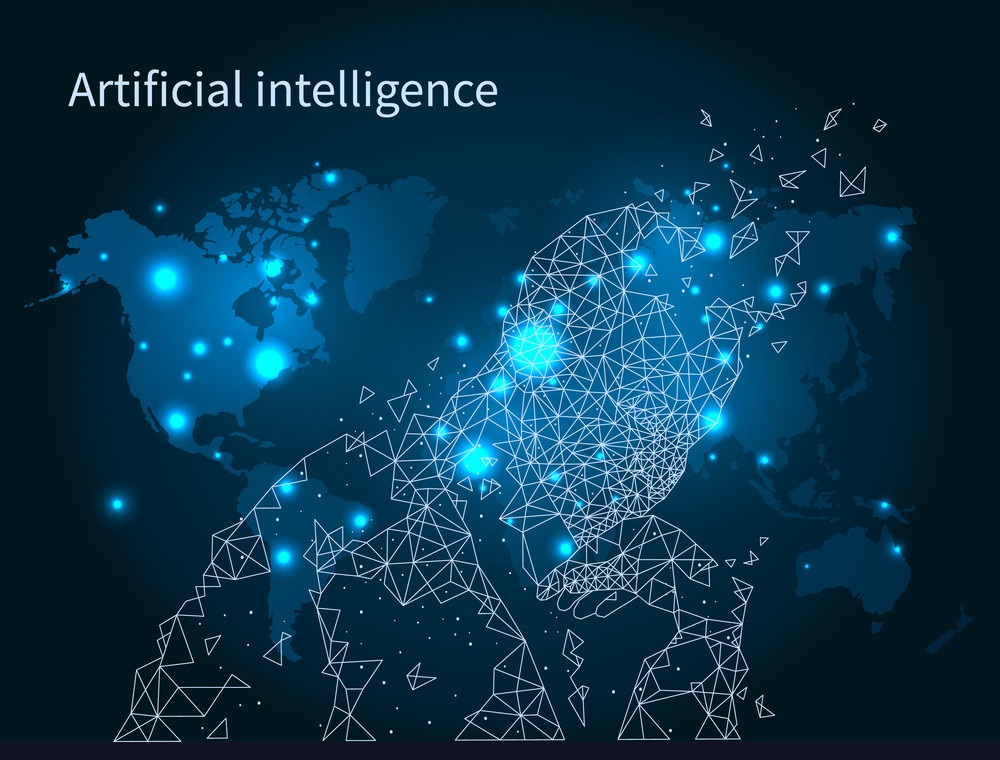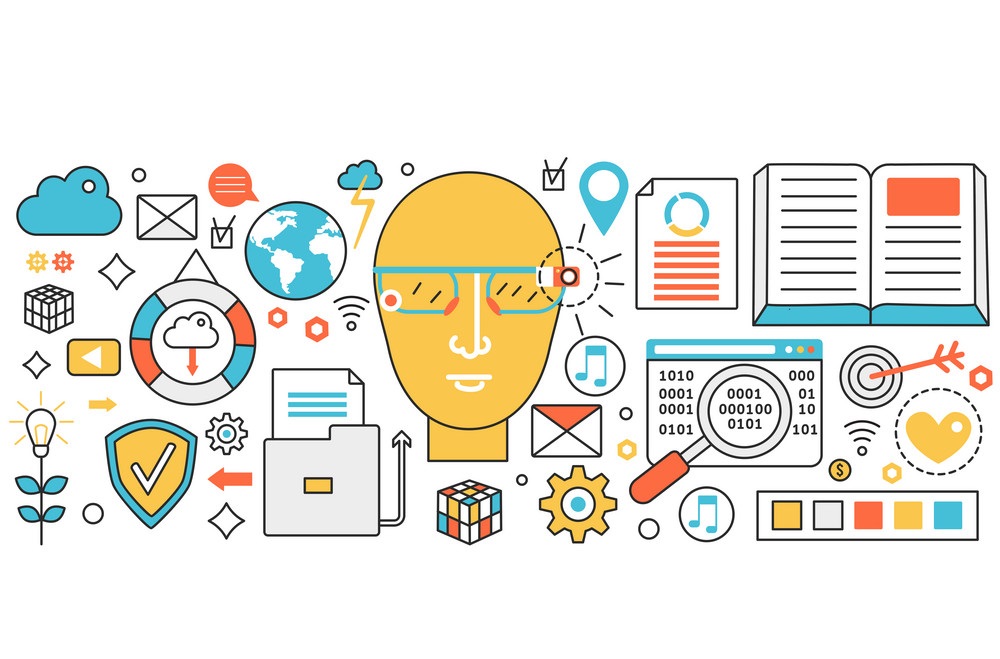The Future of Data Science
The applications of data science are immense and the future holds great potential for data science and related technologies. The article focuses on the future of data science.
2.5 quadrillion bytes of information are generated every day. Data science is crucial for any business producing large volumes of data. Digital data is the fuel that powers the engine of the global economy. Data science and technologies like artificial intelligence, machine learning, deep learning, etc., are among the rapidly growing emerging technologies.
Advantages of Data Science for Businesses
These are some advantages of applying Data Science in companies:
- Segmentation of potential customers to influence their purchase decision.
- Feasibility and profitability analysis of new products to be developed.
- Increased knowledge of customers and their preferences
- Better marketing campaigns
- Better strategies in social networks, e-commerce, etc.
- Detection and quantification of possible risks of customer loss



Best-suited Data Science courses for you
Learn Data Science with these high-rated online courses
Evolution of Data Science
Data science started evolving with statistics. Simple statistical models have been used to collect, analyze, and manage data since the early 19th century. Later, when computers went mainstream, the era of the digital age started with the generation of vast amounts of data. To handle such massive data, statistical practices and models were computerized.
After this digital age came the era of the Internet, which led to an explosion of data, leading to Big Data. The need to process and manage this data required expertise, and that, in turn, led to data science. Data science helped businesses process, collect, analyze, visualize the data and convert data into information to make business decisions.



Future of Data Science
Recent advancements in technology have made it possible to harness data and its usefulness. Let’s take a look at what could be the future of data science.
Growth of Disruptive Technologies
More and more people are connected to mobile devices, leading to vast volumes of data every day. Technologies like IoT, artificial intelligence, big data analytics, blockchain, and quantum computing will mark remarkable growth in the future.
Businesses like aviation, e-commerce, mining, automotive, telecom, etc., will be the most significant contributors to such data. With the improving quality of device technology, the collected data will be more prosperous and more disparate. Data-driven insights will transform the businesses, acquire new customers, tap new avenues of growth, boost revenues, and much more.
Social Networks
Every time a person logs in to view your newsfeed or watch videos, data is generated.
Age, gender, location, language, duration of views, types of videos viewed, type of content liked, shared user preferences, etc. Data sources will continue to expand as the need to collect even more significant customer information increases.



The Rise of AI and ML
AI, ML, and deep learning will be at the forefront of the technologies. The demand for skilled professionals handling these technologies will be high. The development and training of machine learning modules are part of the critical responsibilities of data scientists.
Pre-trained AI models effectively produce the ML experience and reduce the time and effort required for training. These models can even have immediate vital insights.
AI and ML are already dominant in day-to-day life, and their features are evolving with each passing day. AI, ML, and deep learning systems have started developing capabilities and improving their performance without human intervention.
Gartner suggests that by 2023, all personnel hired for AI development and training work should have expertise in responsible AI.
Automated ML
Data scientists spend a significant part of their day-to-day time on repetitive tasks. Expect these tasks to be fully or partially automated. Automating tasks like data cleaning and preparation, feature engineering, and algorithm selection will help data scientists be more productive.
Rise in Advanced Analytics
Data allows organizations to understand consumer behavior better and empowers them to analyze markets well. Predictive analytics is the newfound interest of businesses. It helps them predict how a product will perform in the future or how the consumers would react to it. These changes are a result of –
- The exponential growth of data derived from smartphones and portable devices
- Introduction of software for handling large volumes of highly complex data
- Application of algorithms for solving big data problems
Self-service data analysis
Business intelligence and analytics providers like Salesforce, Adobe Analytics, Microsoft Power BI, and others will offer self-service analytics tools. This will help to complement data discovery and analysis. NLP, visual data discovery, and natural language generation will provide quick access to information. It will help the users to communicate data findings such as correlations, exceptions, clusters, links, and predictions.
E-Learning
The future will see more and more people getting enrolled in short-term data science courses. The rise of MOOCs in the lockdown period has helped professionals learn data science and sharpen their skills further.
Increased number of data science jobs
Businesses will implement predictive models and algorithms to standardize and digitize their processes and improve the efficiency of the existing methods. They would need a more scalable and agile approach to data science projects. To achieve that, companies need a skilled workforce with backgrounds in data science, computer science, math & statistics, and business intelligence.
Naukri.com lists over 50,000 data science jobs in India as of March 2022. By 2026, the market will see a boom in employment opportunities for data science professionals marking a growth of 46%.
Top data science profiles –
- Data Scientist
- Machine Learning Engineer
- Data Analyst
- Business Intelligence Developer
- Data Architect
- Artificial Intelligence Engineer
- Data Engineer
Why Study Data Science?
Numerous jobs have been created in IT amidst the COVID-19 pandemic. The role of a Data Scientist is one of the most required today. This professional profile transforms large amounts of data into valuable information to make decisions based on objective information. It helps in studying and interpreting the data, thus helping the businesses determine the correct strategies or actions.
Data Science Course Recommendations
- Executive Data Science Specialization on Coursera
- Data Science for Engineers from IIT Madras on NPTEL
- Python for Data Science from IIT Madras on NPTEL
- Data Science for Executives on edX
- Applied Data Science with Python Specialization by the University of Michigan on Coursera
- Data Science for Business with R Programming on Coursera
Conclusion
The future of data science is bright, and with increased applications across domains, its prospects are immense. Along with artificial intelligence and machine learning, data science will contribute towards a higher level and intelligent decision-making for businesses.
Top Trending Articles:
Data Analyst Interview Questions | Data Science Interview Questions | Machine Learning Applications | Big Data vs Machine Learning | Data Scientist vs Data Analyst | How to Become a Data Analyst | Data Science vs. Big Data vs. Data Analytics | What is Data Science | What is a Data Scientist | What is Data Analyst

Rashmi is a postgraduate in Biotechnology with a flair for research-oriented work and has an experience of over 13 years in content creation and social media handling. She has a diversified writing portfolio and aim... Read Full Bio







